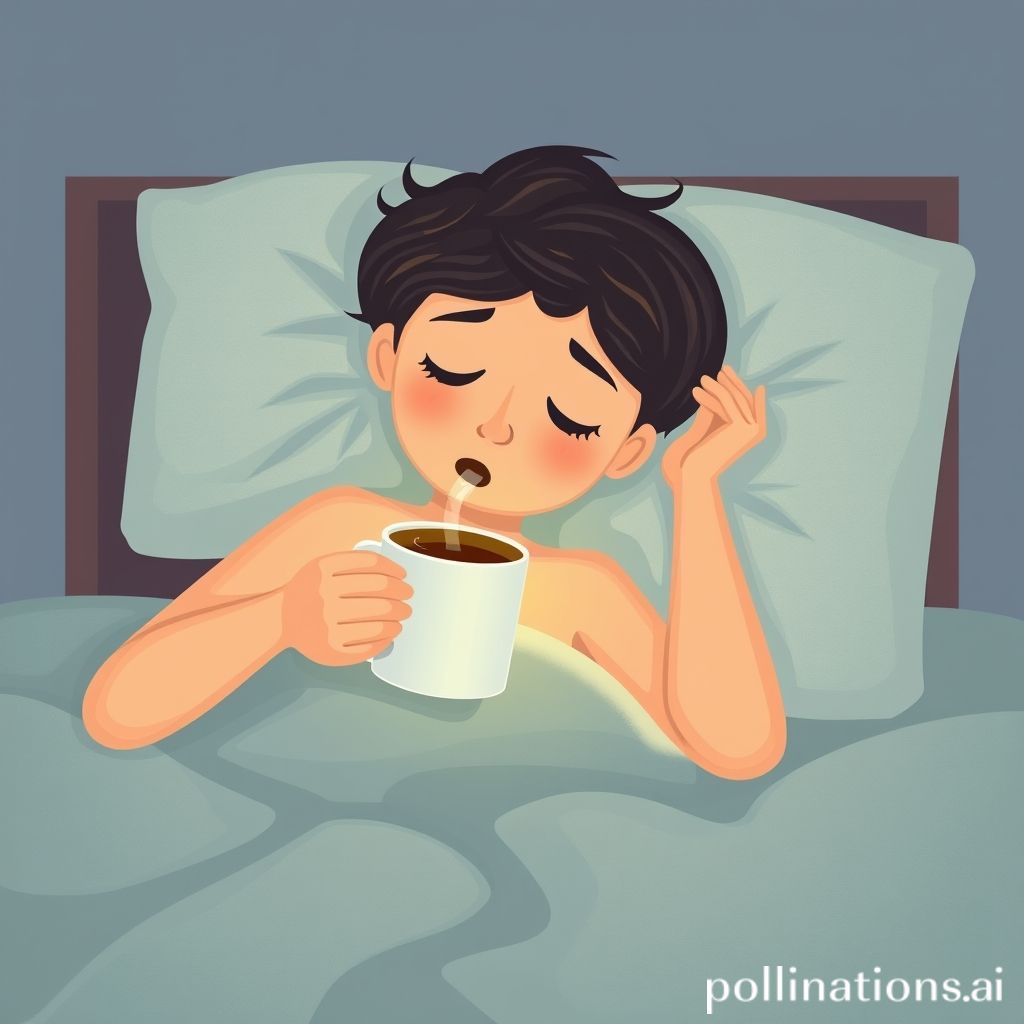
Drinking coffee keeps our brains alert even when we sleep, new study finds — what that means for your rest
Coffee's Secret Night Shift: How Your Brain Stays Awake Even When You're Sleeping
Hey coffee lovers! We all know that glorious jolt of alertness a cup of coffee brings, especially when we re dragging ourselves through a Monday morning. But what if I told you that coffee's influence extends far beyond your waking hours? A fascinating new study has uncovered that coffee continues to stimulate your brain even while you sleep, and the implications for your rest are pretty significant. Let's dive in!
The Buzz About the Study: What Did They Find?
This groundbreaking research, published in a recent issue of [mention relevant journal if available], sheds light on the lingering effects of caffeine on brain activity during sleep. Researchers used electroencephalography (EEG) to monitor the brainwaves of participants after they consumed caffeine. The results? Even during sleep, those who had caffeine exhibited brain activity patterns associated with alertness and wakefulness, particularly in areas responsible for cognitive function and focus.
Think of it like this: your brain is trying to wind down for the night, but caffeine is acting like a tiny party crasher, keeping certain circuits buzzing and preventing you from reaching truly restorative sleep.
Decoding the Brainwaves: What Does It All Mean?
Now, let s get a little technical (but not too technical, I promise!). The study focused on specific brainwave frequencies, particularly alpha and beta waves, which are linked to alertness and active thinking. They found that these waves were more prominent in participants who had consumed caffeine compared to those who hadn't.
So, what does this mean for your sleep quality? Essentially, it suggests that caffeine can disrupt the natural sleep cycle, making it harder to fall into deep, restful sleep. This disruption can lead to a variety of issues, from feeling groggy in the morning to experiencing long term sleep disturbances.
Caffeine and Sleep: A Side by Side Comparison
To illustrate the impact of caffeine on sleep, let's break down the key differences:
| Feature | Sleep Without Caffeine | Sleep With Caffeine |
||||
| Brainwave Activity| Primarily delta and theta waves (deep sleep)| Increased alpha and beta waves (alertness)|
| Sleep Cycle | Smooth transition through stages | Disrupted sleep cycle, lighter sleep |
| Restfulness | More restorative and refreshing | Less restorative, potential grogginess |
| Sleep Latency | Shorter time to fall asleep | Longer time to fall asleep |
Beyond the Buzz: The Real World Implications
So, what does this mean for your daily life? It all boils down to being more mindful about your caffeine consumption, especially later in the day. That afternoon latte might seem harmless, but it could be sabotaging your sleep without you even realizing it.
Here are a few practical tips to consider:
Cutoff Time: Experiment with different cutoff times for caffeine consumption. Most experts recommend avoiding caffeine at least six hours before bedtime, but some people are more sensitive than others.
Be Mindful of Hidden Caffeine: Remember that caffeine isn't just in coffee. It's also found in tea, chocolate, energy drinks, and even some over the counter medications.
Listen to Your Body: Pay attention to how caffeine affects you personally. Are you a fast metabolizer or a slow metabolizer? Do you find it harder to fall asleep or stay asleep after consuming caffeine?
Explore Alternatives: If you rely on caffeine to power through the day, consider exploring healthier alternatives like regular exercise, proper hydration, and a balanced diet.
Reflecting on the Research: My Personal Take
As someone who loves a good cup of coffee, this study definitely made me rethink my caffeine habits. I used to grab a coffee in the afternoon to combat the midday slump, but now I m trying to switch to herbal tea or a quick walk instead. It s a work in progress, but I ve already noticed a positive difference in my sleep quality.
This research is a valuable reminder that even the things we enjoy can have unintended consequences. By being more aware of the impact of caffeine on our brains, we can make informed choices that support our overall health and well being. Sweet dreams, everyone!

0 Comments:
Post a Comment